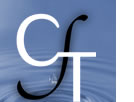 |
||||||||||
From the Student's View: Student Course Evaluations
This article was originally published in the Fall 2003 issue of the CFT's newsletter, Teaching Forum.
by Anupama Balasubramanian
In this column, we feature the perspectives of Vanderbilt students. For this issue, as a way of beginning to understand Vanderbilt student perceptions and experiences with student rating forms, the Center for Teaching recently gathered informal, qualitative responses from eight undergraduates who span a range of majors, schools and class years. The following summarizes and highlights their responses; anyone interested in the full transcript of student responses may contact the editor at Click here to contact us..
How do you view the student end-semester course evaluation process?
All the students agreed it is essential for faculty to get feedback in order to know where they stand in the eyes of the students. However, some expressed concern about what is done with the feedback, and if it is used at all: "I sometimes wonder if anything ever comes of them," said one. Some felt it's not possible to grade an instructor by simply assigning numbers: "Using a scale system to rank a teacher can hardly give enough insight to whether or not they are being an effective professor" and "It is too hard to get accurate description with attention to intricate details from a scantron."
Instead, most of the students felt that asking more specific questions would help students express themselves better and give instructors more useful feedback. They felt that "other comments" was far too vague and broad a category: "Having a response like 'comments about the professor's tests,' 'comments about the professor's teaching style,' or 'comments about the grading system' would be more helpful." Some students also questioned the quality of the feedback obtained: "Evaluations are a little too well structured, so they limit the student's ability to provide genuine feedback."
How seriously do students take these evaluations?
Most of the students said that they take the evaluations very seriously, while also claiming that they have friends who do not value them much. Some felt that the evaluations are taken seriously only in extreme cases, when students are very happy with the course or highly displeased with the way it was handled; otherwise they felt it was immaterial: "I think that students really only take the evaluations seriously if there is a problem with the course." Some felt it depends on the way the students feel about the teacher: "The evaluation is used as a weapon of the weak so that students can grade low to show their disapproval of the teaching style and grading etiquette." Some also felt that their individual evaluations have little, if any, impact: "I don't see the individual evaluations making a difference since the questions are too broad."
How seriously do students think faculty and administration take them?
These students' responses were strikingly bimodal: 50% felt that the faculty and administration take the evaluations very seriously "In a way, it is their only grade from the students all semester!!" and the other 50% completely disagreed: "Many of the professors have been here for a very long time, and giving them scores that may not be considered good won't really make a difference." Some believe that faculty and administration get the evaluations too late to do anything with the data: "At most, it may help confirm an already made decision." On the other hand, some felt that the faculty and professors value the evaluations very much, and that professors will try something different if there are huge negative responses to their current teaching.
How might the end-semester course evaluation process be improved?
Most of the students felt that revising the evaluation to include more short-answer questions would help students express themselves better and the instructor gain better feedback: "An evaluation shouldn't be treated like a multiple choice exam," and "I think it would also be good to balance the number of written responses with multiple choices." Another suggestion was to distribute the evaluation forms earlier in the class period, instead of a few minutes before the end, thus giving students more time to analyze and answer the questions constructively. A major concern expressed was the fact that the students need to be motivated to consider evaluations seriously, and that this, in turn, requires that the faculty and administration value them and use them wisely and that those processes are more clearly communicated to students.
HOME | ABOUT CFT | PROGRAMS | SERVICES | RESOURCES
Center for Teaching |
General Questions? Web Site Questions? Copyright ©2009 |
